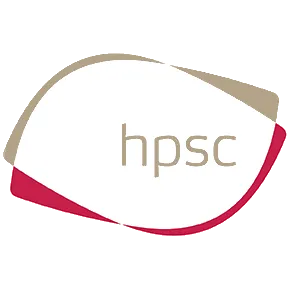Carbon Monoxide
What is Carbon Monoxide (CO)?
Carbon Monoxide (CO) is a colourless, odourless poisonous gas.
Is it a health risk?
When a person breathes in CO it combines with the oxygen-carrying part of the blood, preventing it from absorbing oxygen, which is essential for life. If a person is exposed to significant levels of CO it can cause illness and even death. Unfortunately, CO causes preventable deaths and illnesses every year in Ireland and internationally.
How can I protect myself and my family from CO poisoning?
CO can be produced where there is an incomplete combustion process of various fuels and sometimes occurs when a heating appliance is faulty. People can protect themselves from CO poisoning by:
- Using only safe serviced heating appliances
- Ensuring ventilations systems are working
- Installing a Carbon Monoxide alarm
What precautions should I take during flooding:
- Be mindful of the risk of carbon monoxide when dealing with flooding situations.
- Petrol or diesel generators and other fuel-driven equipment should never be used in unventilated spaces:
- The exhaust gases contain carbon monoxide which, without good ventilation, can quickly build up to poisonous levels.
- The same risk is carried by portable grills, camp stoves, paraffin- fuelled heaters or other devices using gasoline, propane or natural gas. These should only be used in well-ventilated spaces.
- If you experience dizziness, headaches or disorientation, the appliance should be switched off, you should move to a well-ventilated area and seek medical advice
- For further public health advice for dealing with flooding situations, please click here.
For more information, please see the dedicated Carbon Monoxide website.
Information for GPs and other health professionals here.
Information, Data and Reports for
-
Environment and Health
- Air Quality
- Bathing Water and Health
- Carbon Monoxide
- Climate Change
- Energy and Health
-
Extreme weather events
- Flooding
- Health Effects of Air Pollution
-
Cold weather
- Cold Weather Advice for the General Public
- Air Quality and Safe Room Ventilation During Cold Weather
- Cold Weather Advice for Older People and their Families and Neighbours
- Cold Weather Advice for Parents and Caregivers: Tips to Keep your Children Warm this Winter
- Cold Weather Advice for People with Specific Medical Conditions
- Cold Weather Advice for Health and Care Professionals
- Useful Links and Resources
- Frostbite and Hypothermia
- Air Pollution Health Advice
- Heat related hazards
- Air pollution from wildfires
- Storms
- Noise: Environmental Noise Guidelines
- Radon and health
- Radiation
- Odour: Environment and Public Health
- Review of Environment and Health Needs, HSE Public Health: Health Protection
-
Public Health Medicine Environment and Health Guidance and other Resources
-
Heatwaves - Health Impacts
- Covid-19 & Heatstroke
- Heatwave Advice - Children
- Air pollution from wildfires
- Dehydration
- Heatwave Health Advice
- Heatwave Advice - Older Adults
- Heatwave Advice - Older Persons Services
- Heatwave Advice - Outdoor Workers
- Indoor Temperature Control
- Sun and outdoor safety
- Preventing sunburn in children
- Causes and prevention -Skin cancer (melanoma)
- Investigation of possible waterborne disease
- Water Safety
-
Heatwaves - Health Impacts
- PHMEHG Submissions
- PHMEHG position papers



